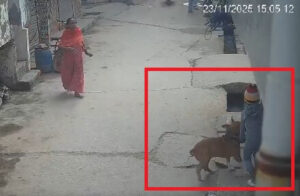No coercive action against Army Major accused of civilian killing: SC

Supreme Court (File/IANS)
New Delhi : The Supreme Court on Monday said that no coercive action will be taken against Major Aditya Kumar, accused of allegedly killing three civilians in firing to disperse a stone pelting mob in Shopian district of Kashmir.
Jammu and Kashmir Police registered an FIR against Major Aditya Kumar.
Directing that no coercive action would be taken against the Army Major in pursuance to the FIR, a bench of Chief Justice Dipak Misra, Justice A.M. Khanwilkar and Justice D.Y. Chandrachud sought the response from the Centre and the Mehbooba Mufti government in the state.
The father of the accused Major, Lt. Col. Karamveer Singh, had petitioned seeking quashing of the FIR.
The father contended that registration of FIR and the consequent proceedings would adversely impact the morale of the armed forces fighting militancy in the trouble-torn state.
The court asked for a copy of the petition to be served on the office of the Attorney General K.K. Venugopal.
Senior counsel Mukul Rohatgi, who appeared for the petitioner, urged the court to stay the FIR.
Major Aditya Kumar and other soldiers of the 10 Garhwal Rifles were accused of opening fire on a stone-pelting mob which had attacked an administrative army convoy near Ganowpora village in Shopian district on January 27.
The firing resulted in the death of three persons.
“The manner in which the lodging of the FIR has been portrayed and projected by the political leadership and administrative higher-ups of the state, reflects the extremely hostile atmosphere in the state,” the petition said.
“In these circumstances, the petitioner is left with no other viable option but to approach this Court under Article 32 of the Constitution of India for protection of valuable Fundamental Rights of his son and himself, enshrined under Article 14 and 21 of the Constitution of India,” the plea said.
It said that Major Aditya Kumar was wrongly and arbitrarily named as the incident relates to an Army convoy on bonafide military duty in an area under AFSPA (Armed Forces Special Powers Act), which was isolated by an “unruly and deranged” stone-pelting mob.
The intention of the Major was to save Army personnel and property, and the fire was inflicted only to impair and provide a safe escape.
“The unruly mob was requested to disperse and not to obstruct military persons in the performance of their duties and not to damage government property…”
The unruly behaviour of the unlawful assembly reached its peak when they got hold of a Junior Commissioned Officer and was in the process of lynching him.
“It was at this moment that warning shots were fired… which as per the said terms of engagement is the last resort to be taken…,” the plea said.
It also sought directions to issue guidelines to protect the rights of soldiers and adequate compensation.
IANS





